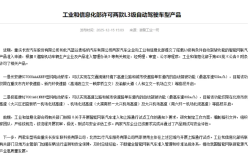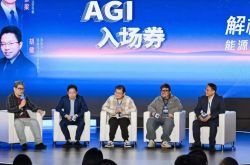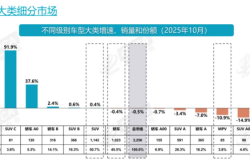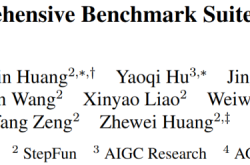Domestic AI Computing Power Makes Major Inroads into Top Universities
![]() 09/02 2025
09/02 2025
![]() 655
655

In today's technological landscape, computing power stands as a cornerstone of digital infrastructure, taking center stage in advancements across various sectors. Universities, as hubs for scientific research and talent nurturing, are witnessing a surge in demand for computing power, fostering a wave of construction projects aimed at bolstering their computational capabilities. Amidst this trend, domestic AI computing power has emerged as a pivotal force, significantly penetrating top universities, infusing fresh energy into their development, and embarking on a transformative journey to empower both scientific research and education.
01 Comprehensive Deployment of Domestic Computing Power in Universities
Leading universities across the nation have proactively invested in the deployment of domestic computing power, fostering unique development models and fostering its deep integration within the academic sphere.
Southeast University embarked on its computing power journey early, driven by a shortage of resources in late 2022. By October 2023, the university had strategically decided to establish the country's first university-level intelligent computing center, entirely powered by domestic technology. After rigorous testing and R&D, in January 2024, the Ascend chip-equipped computing base was successfully activated, followed by continuous expansion. By November 2024, its computing power had reached 86P. This intelligent computing center harmoniously integrates Kunpeng general-purpose computing power with Ascend AI computing power, achieving full localization from model training to service deployment. It boasts a comprehensive technology chain spanning from chips to frameworks, offering robust support for the university's scientific research and teaching endeavors.
At the Kunpeng Ascend Developer Conference 2025 (KADC 2025) held in May, several prominent domestic universities showcased their groundbreaking research achievements leveraging the Kunpeng Ascend technology pathway. Peking University's Open-Sora Plan V1.5, reliant on the Ascend MindSpeed MM multimodal large model suite for training and optimization, has achieved cinematic video generation. Meanwhile, Shanghai Jiao Tong University's research team has developed a molecular simulation high RBE algorithm using Kunpeng processors, significantly enhancing computational efficiency and potentially becoming the linchpin for the next generation of molecular dynamics engines.
These achievements are merely the tip of the iceberg. At the 2024 KADC conference, Huawei announced collaborations with five esteemed universities—Tsinghua University, Peking University, Zhejiang University, Shanghai Jiao Tong University, and the University of Science and Technology of China—to jointly establish Kunpeng Ascend Science and Education Innovation Excellence Centers. By the time of the 2025 KADC conference, Huawei had expanded its partnerships to include seven additional universities, forming the Kunpeng Ascend Science and Education Innovation Incubation Center network.
With the expansion of partner universities, an increasing number of university computing cluster platforms are receiving computing power support from Kunpeng Ascend Science and Education Innovation Excellence/Incubation Centers. This forms a solid foundation for innovations in computing systems and scientific applications. For instance, Peking University has constructed the Peking University Excellence Center cluster, based on Kunpeng Ascend hardware, providing robust computing power for cutting-edge AI research like Align-Anything. This cluster exemplifies independent innovation, spanning from underlying hardware to upper-level application technology stacks.
Shenyang Institute of Technology has also collaborated with Huawei Technologies Co., Ltd. to locally deploy DeepSeek on the Huawei Ascend platform, establishing the "Intelligent Engine Deep Space" AI computing center. Leveraging the formidable computing power of the Huawei Ascend AI server cluster, the center deploys micro-module data centers and multiple state-of-the-art laboratory clusters, ensuring high-performance computing power for model training and optimization. It also integrates the institute's unique teaching data resources, fostering a localized intelligent education ecosystem.
Beyond Ascend and Kunpeng's university deployments, other domestic chip vendors are keeping pace. Zhejiang University is advancing domestic computing power through multi-party collaborations. The school has established a tripartite partnership with Taiji Corporation and Zhonghao Xinyin, introducing the "Taize" artificial intelligence server, which is powered by Zhonghao Xinyin's fully independently developed TPU architecture and the high-performance AI chip "Nachuan." Additionally, Zhejiang University has collaborated with operators and industry leaders to form the "West Lake Light" computing alliance, amalgamating local computing resources exceeding 1000 Pflops (FP16) and thousands of P of cloud computing power from alliance members. This forms a potent computing synergy, offering a solid guarantee for scientific research and teaching. Haiguang Information and Southeast University have joined forces, relying on Haiguang's latest generation of domestically produced C86 processors and GPU accelerators. Together, they have successfully created a benchmark platform for large-scale domestic computing power applications in 985 universities—the Southeast University Material Design and Simulation Center. This initiative injects strong momentum into the school's cutting-edge scientific research and propels the development of related disciplines.
02 Universities' Large-Scale Procurement of Domestic Computing Power
The application of domestic computing power in universities is not confined to strategic deployments but also manifests in large-scale procurement actions. Nowadays, not only prestigious 211 and 985 universities but also numerous local first- and second-tier universities are actively seeking partnerships, embracing large models, and demonstrating a strong demand for computing power.
The market frequently witnesses substantial orders, with many university research institutes issuing computing power procurement requirements in the tens or even hundreds of millions of yuan, some of which explicitly specify domestic products. This phenomenon underscores universities' recognition and trust in domestic computing power, reflecting that it has already met their needs for scientific research and teaching in terms of performance, stability, and other crucial aspects.

AI has emerged as an indispensable force in university scientific research. In fact, "AI for Science" is not a novel concept; as early as 2018, Academician E Weinan of the Chinese Academy of Sciences first proposed this concept globally. AlphaFold's breakthroughs in protein structure prediction have continuously propelled "AI for Science" from specialized circles into the public eye. Furthermore, when the Nobel Prizes in Physics and Chemistry were successively awarded to researchers in AI-related fields, this concept gained broader recognition and once again became the focus of intense discussions across various sectors.
"What excites everyone the most is that originally, AI for Science was executed by diverse models, but now, those working on proteins, mathematics, etc., can all be 'integrated' into the large model approach, with the core architecture even being entirely transformer," said Wang Yanpeng, an outstanding system architect at Baidu. His remarks have provided universities, which have always been the primary battlegrounds of scientific research, with a new direction of certainty. This has prompted them to concentrate their efforts on advancing AI for Science, further intensifying their demand for computing power and accelerating the process of large-scale procurement of domestic computing power.
03 Rationale Behind Universities' Deployment of Domestic Computing Power
Universities' proactive deployment of domestic computing power is not fortuitous but rather stems from various considerations, encompassing both the practical needs of scientific research and teaching, as well as national strategies and long-term development goals.
Firstly, computational support for complex scientific research model training:
In frontier scientific research fields such as biomedicine, astrophysics, and materials science, university research teams confront large-scale and complex scientific computing and model training tasks. Taking biomedicine as an example, the development of new drugs necessitates the simulation and analysis of vast amounts of biological data and the construction of intricate biological molecular models, both of which have exceptionally high computing power requirements. Domestic computing power platforms, with their formidable computational capabilities, can significantly reduce model training time, enhance research efficiency, and aid university research teams in achieving groundbreaking results in these domains.
Guaranteed computing power for multidisciplinary integration: Currently, the integration of disciplines has become a pivotal trend in scientific research innovation, with universities encouraging cross-disciplinary teams to collaboratively undertake research projects. For instance, in the interdisciplinary realm of artificial intelligence and law, building a large model for the legal vertical domain entails processing extensive legal provisions and case data, integrating technologies from multiple disciplines such as natural language processing and machine learning. Domestic computing power platforms can provide a unified and potent computational foundation, breaking down disciplinary barriers in terms of computing power, fostering data sharing and collaborative computing across disciplines, and offering robust support for interdisciplinary scientific research innovation.
Secondly, ensuring data security and independent controllability:
Protection of scientific research data security: University scientific research data encompasses a wealth of cutting-edge research findings, sensitive experimental data, and more, making data security paramount. By adopting domestic AI computing power, data storage and computation occur within a domestically controllable environment, effectively mitigating the risk of data leakage that might arise from using foreign computing power platforms. This prevents scientific research results from being stolen and safeguards national scientific research security and the core interests of university research teams.
Strategic consideration of independent technology controllability: Amidst intensifying international technological competition, independent technology controllability is crucial for universities to maintain their scientific research competitiveness. Relying on foreign computing power technologies may expose universities to risks such as technology blockades and restricted usage, hindering the advancement of their scientific research. The development of domestic AI computing power presents universities with the opportunity to make independent choices. By deploying domestic computing power, universities can seize the initiative in technology and avoid being constrained by others in AI technology research and application, laying a solid foundation for long-term scientific research innovation and development.
Thirdly, fostering AI talent cultivation and discipline development:
Practical platform for nurturing AI innovative talents: Universities serve as essential bases for AI talent development, and domestic AI computing power platforms provide students with a practical environment akin to industry realities. Through hands-on activities such as AI algorithm training and model development on these platforms, students can gain a profound understanding of AI technology principles and applications, enhance their practical abilities and innovative thinking, and cultivate AI innovative talents who possess both solid theoretical knowledge and practical operational skills, meeting society's urgent need for AI professionals.
Promoting the development of AI-related disciplines: Robust computing power support aids universities in developing AI-related disciplines and attracting more outstanding faculty and research talents. Universities can rely on domestic computing power platforms to offer advanced courses, including large model algorithm research, high-performance computing, and AI applications, thereby elevating discipline teaching standards. Simultaneously, it facilitates teachers in undertaking research projects in the AI domain, yielding more high-impact scientific research achievements, augmenting discipline influence, and accelerating the rapid development and growth of AI-related disciplines within universities.








